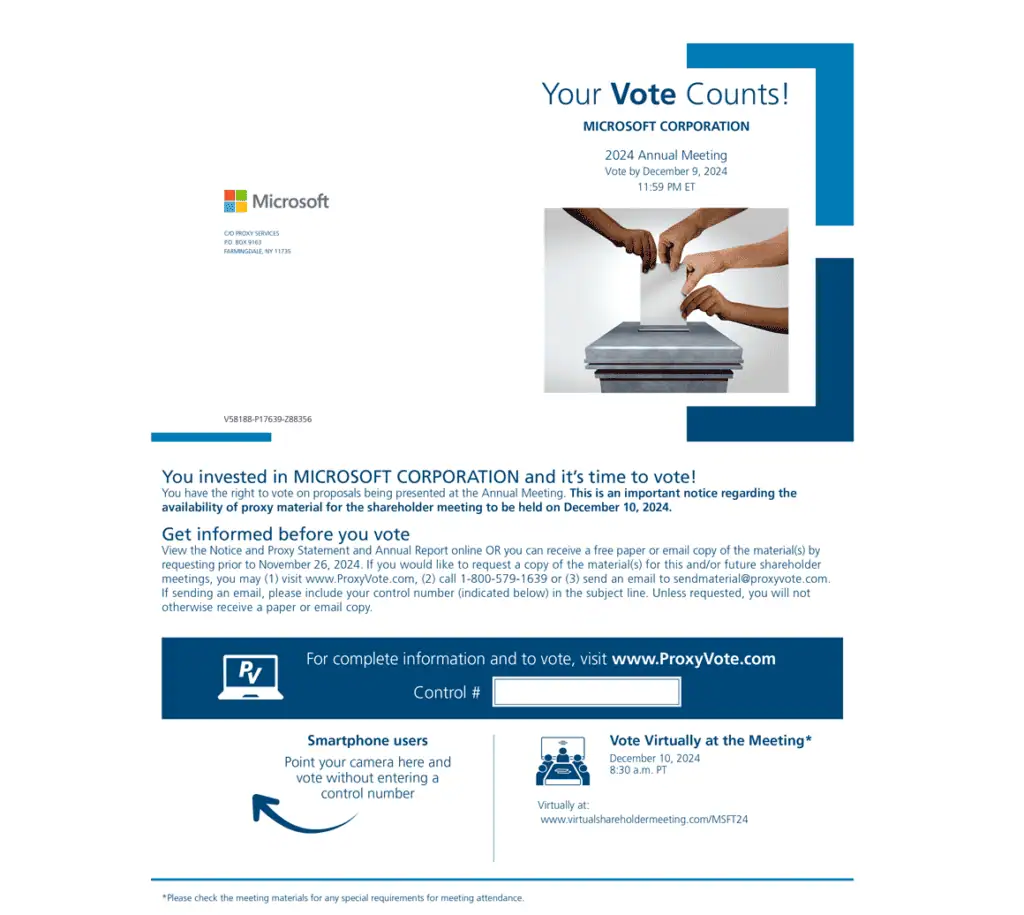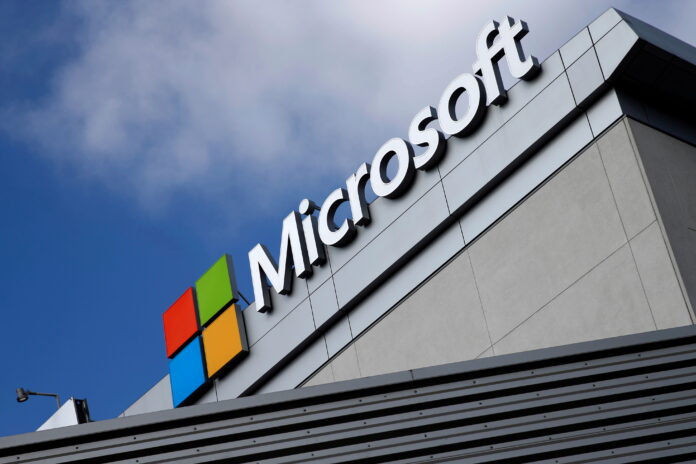Microsoft and its shareholders will make a decision on Tuesday on whether or not to buy Bitcoin as a strategy to maintain part of their strategic reserves using this cryptocurrency.
Microsoft, the world’s third-largest company by market capitalization, with total assets exceeding $523 billion, is at a crucial point. On Tuesday, the company’s shareholders will vote on a proposal that could change the landscape of institutional investments: the ability to add Bitcoin to your reserves.
The proposal, presented by the National Center for Public Policy Research (NCPPR), a conservative US think tank, is seeking to have Microsoft evaluate the diversification of its balance sheet with Bitcoin. Although the favorable vote would not imply an immediate purchase, it would force the board of directors to carry out a detailed analysis on whether the inclusion of Bitcoin in its assets is in the long-term interest of shareholders.
The inflationary context and the NCPPR proposal
The NCPPR argues that in an environment of constant inflation, a company’s success is measured not only by its ability to generate profits, but also by its ability to protect those profits. According to the Consumer Price Index (CPI), the inflation rate in the United States has averaged 5% over the past four years. The NCPPR criticizes this measure, suggesting that the actual inflation rate could be significantly higher.
In this scenario, corporations have a fiduciary responsibility to protect their assets from deterioration, in addition to increasing their profits. The NCPPR argues that Bitcoin is an excellent, if not the best, hedge against inflation, despite its volatility. The proposal recommends that companies, at a minimum, evaluate the benefits of allocating 1% of their assets to Bitcoin.
Microsoft’s position
In response to the proposal, Microsoft’s board of directors has recommended voting against the proposal. They argue that an evaluation of Bitcoin is unnecessary, as the company’s management has already carefully considered the issue. Microsoft argues that corporate treasuries require stable and predictable investments to ensure liquidity and operational funding.


This stance is shared by Bill Gates, co-founder of Microsoft, who has repeatedly expressed his skepticism about cryptocurrencies, describing them as a speculative asset with no intrinsic value. However, the proposal represents an opportunity for the crypto market to gain more legitimacy. A favorable vote could reinforce Bitcoin’s reputation as an asset that appeals to both individuals and traditional corporations.
Michael Saylor and MicroStrategy: Their Role in the Decision
However, the image of Michael Saylor, CEO of MicroStrategy, who has been a vocal proponent of Bitcoin, weighs heavily on this decision. Recall that in 2020, MicroStrategy became the first publicly traded company to adopt Bitcoin as its primary reserve asset. Since then, the company has accumulated over 402.000 bitcoins, valued at over $38 billion, and has plans to raise another $42 billion over the next three years to buy more.
Saylor has offered to discuss the issue with Microsoft CEO Satya Nadella and has delivered a concise three-minute presentation to Microsoft’s board of directors, including Nadella, advocating for Bitcoin adoption. In his presentation, Saylor highlighted the growing political momentum behind Bitcoin, mentioning support from figures such as Donald Trump and the proposed Bitcoin Bill. Bitcoin Strategic Reserve by Cynthia Lummis. Saylor presented four Bitcoin treasury strategies, each reflecting different levels of commitment, and provided scenario analyses for each.
Saylor’s presentation is strong, as MicroStrategy has made huge profits by following this strategy, a strategy that Microsoft can follow, and make much more in the medium term.
Potential impact on the Bitcoin market
In any case, Microsoft’s decision to include Bitcoin in its reserves or not could have a significant impact on the cryptocurrency market. If Microsoft decides to invest even 1% of its balance sheet, this would generate considerable demand for Bitcoin, potentially pushing its price above the psychological barrier of $100.000.
Not only would this move increase Bitcoin’s legitimacy as an institutional store of value, but it could also encourage broader adoption by other corporations. Microsoft’s presence in the Bitcoin market could be a catalyst for mass adoption, similar to what happened with Tesla and MicroStrategy.
But not everyone is convinced of the advantages of investing in Bitcoin. Peter Schiff, a well-known critic of Bitcoin, has warned about the risks of getting involved in this asset, highlighting its speculative nature and lack of intrinsic value. Schiff shares the stance of Microsoft and Bill Gates, suggesting that the financial market should consider more traditional alternatives. However, this week’s vote represents an opportunity for Microsoft and its shareholders to make a decision based on analysis and evaluation of the risks and benefits of Bitcoin.
Future perspectives
Beyond this, Microsoft’s decision on including Bitcoin in its reserves is a crucial moment for the cryptocurrency market. A favorable vote could mark a milestone in the legitimization of Bitcoin as an institutional asset, while a negative vote could indicate a more conservative stance from the company.
Regardless of the outcome, this proposal reflects a shift in perception of Bitcoin, which is no longer seen as “magic internet money” but as a serious asset that is being considered in the financial strategies of some of the world’s largest corporations. This week’s vote is an indicator of how the financial landscape is evolving and how companies are adapting to new economic and technological realities.





